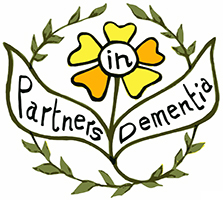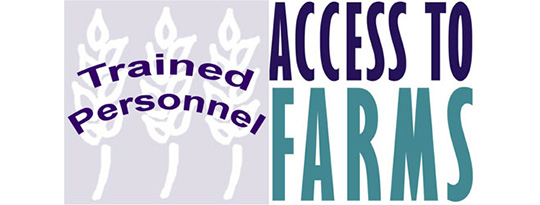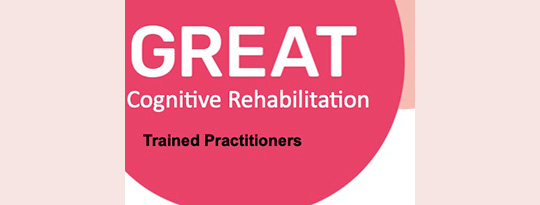Beetle Bank Social Farm and Green Care Coalition
Beetle Bank Social Farm
We currently provide a service known as social farming, which has been described as ‘the therapeutic use of traditional farming practices’. The service supports and provides opportunities for people with dementia and other long term health conditions.
We lease a farm on the outskirts of York and help the farmer there with a variety of everyday and seasonal jobs. We also organise our own occupations, for example, growing vegetables. The service is structured and has familiar routines to help maximise service users’ abilities.
We incorporate an approach known as service user involvement where service users are supported to lead the organisation as much as they are able and interested. For example, one of our organisations Directors has dementia. We are also responsive to service users ideas for improvements to the service, for example, by deciding what to spend funds on etc.
The main benefits of our service
One of our service users family care partners explained our service helps in the following ways:
- A sense of feeling needed
- An opportunity to be helpful
- A boost for self esteem
- Getting together with nature and the outside world
- A social setting encouraging interaction with others
- An understanding of individuals needs and feelings
- A safe environment with many varied activities.
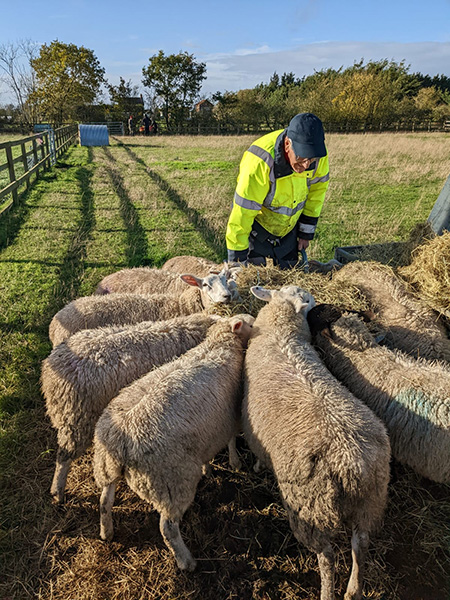
A service user with dementia explained “Its the enjoyment of being with all the animals”. Another said: “When I’m doing something like this I’m thinking about this. When I’m out, even walking, my dementia keeps coming back”. In other words the social farm helps him from feeling like he has dementia. Another family care partner said: The environment and the practical activities suit [husband with dementia] much more than a day centre. What I have also gained is a support network with the other wives which has been so beneficial as well as giving me a much-needed break!
A social Worker made the following comments: Staff and volunteers and family carers encourage people with dementia to participate in activities, tailored to individual needs and focusing on empowerment and building on the capacities they still have. There is an overriding sense of achievement and purpose … I was first struck by the fun and sense of humour that pervades the group … nobody has to join in or do a job, the person may spend most of their time singing to the background music or painting a “play gym” for the goats.
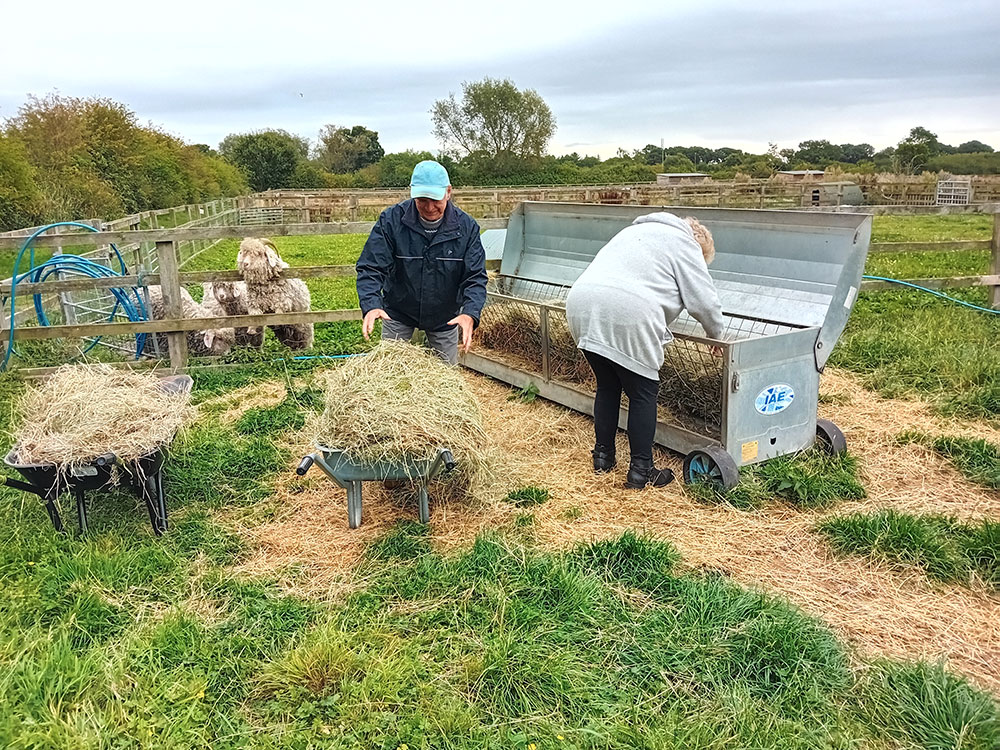
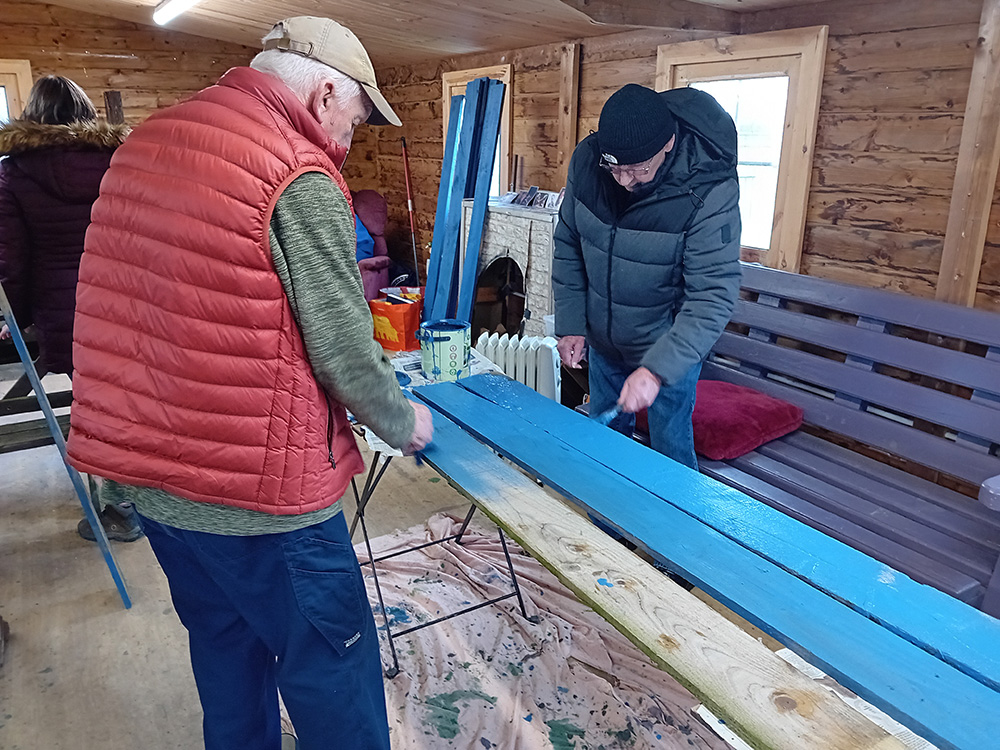
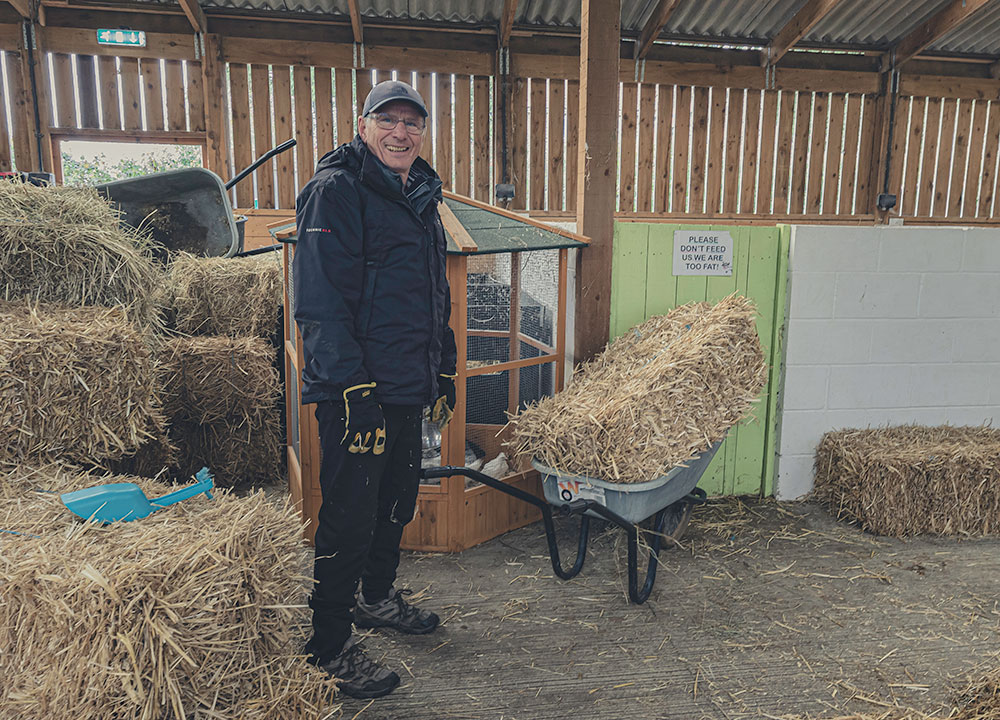
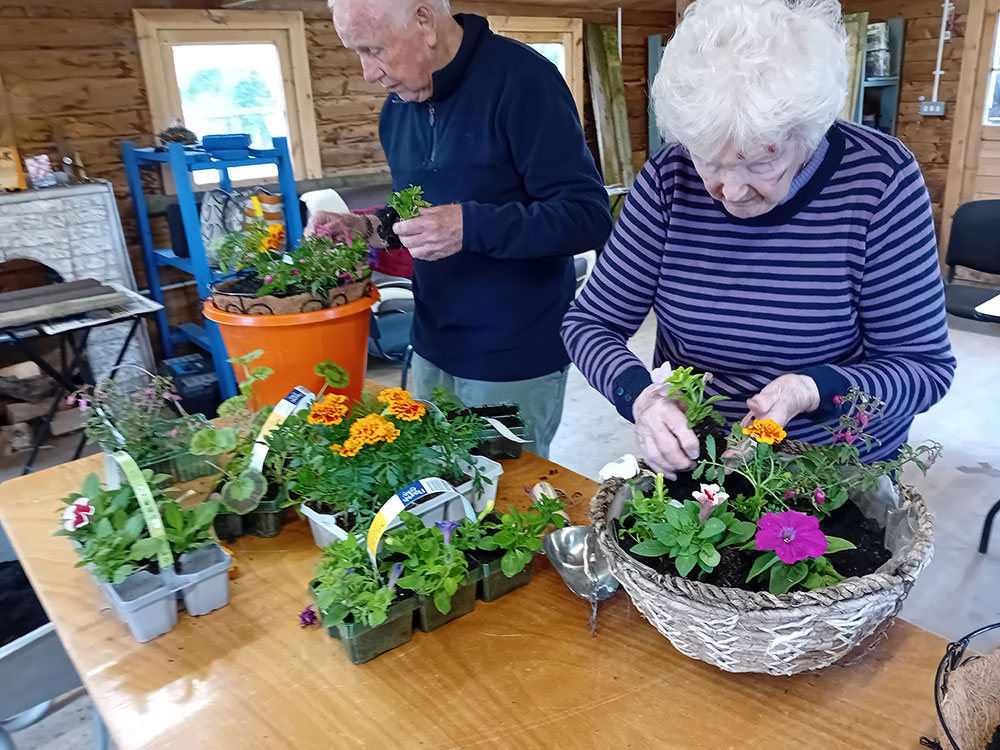
Recruiting participants
Referrals come from a variety of sources, and it is sometimes a tricky area to get right. There is a fine line between marketing our service and holding back from that in order to fill places when they are available. At the moment we are over subscribed so any further marketing would potentially create disappointment. It has been helpful to have workers from referral organisations who really know and understand our organisation and are therefore more conscious of the potential we have to support people. Almost half of our service user referrals come from social services and other statutory services like the Community Mental Health Teams. We receive other referrals from our local Social Prescribing service based in GP practices. Others come from the voluntary sector such as local and national charities. We also receive self-referrals through word of mouth and through the adverts we have on the local authority online care platforms.
Service users are either self-funded or funded by Personal Budgets from the council if they meet eligibility criteria. Others use non means tested benefits such as Attendance Allowance or Personal Independence Payments to fund their places. We also sometimes apply for grants to subsidise fees.
We currently operate on two days per week. Six service users come for full days and nine come for half days, 15 participants in total. We have a waiting list and could fill two more days per week and are negotiating with the farmer about this.
Quality standards
We have acquired the Social Farms & Gardens Code of Practice and completed their care farming training. The code has been a useful self-assessment tool to support the development of our policies and procedures which is useful for safety standards and some grant applications. One of our staff has an MSc in Advanced Dementia Studies which has helped understand effective approaches to supporting people with dementia. For example, this has informed a service user involvement approach where participants with dementia are enabled to ‘help others’ and be actively involved in the service they receive rather than passive recipients of care.
Evaluation
We use reflective practice to help understand and discuss our care practices. To this end we use an adapted NHS reflective tool which helps guide us towards problem solving and service improvements. We also use an observation tool where staff closely observe the wellbeing and engagement of participants and use this information to make service improvements.
We have internally evaluated elements of our service. For example, we evaluated the quality and effectiveness of our service user involvement approach, which highlighted areas we were doing well as well as areas for improvement.
Future plans
We aim to increase our service user capacity by employing a second practitioner. This will also help to improve service quality. We want to operate on additional days of the week as we could currently fill that demand. We are in discussions with the farmer we rent from about this possibility.
We are working to establish a new approach in dementia care known as cognitive rehabilitation. Cognitive rehabilitation supports people with dementia to function at their best in areas of daily living: https://sites.google.com/exeter.ac.uk/great-cr/home
There is a great need for strategies to help family and professional care partners to reduce their stress levels and cope in their caring roles. Breath work practices such as ‘coherent breathing’ are well researched to help in this way and we are training staff in this approach:
https://www.youtube.com/watch?v=HsFWg8yUPm8&t=3860s
Contact Details
Justin Mazzotta: Director
Email: beetlebanksocialfarm@gmail.com
Tel: 07932 420726
Website: www.beetlebanksocialfarm.org
